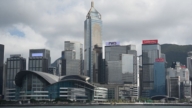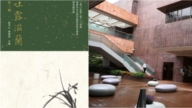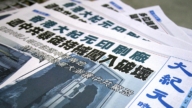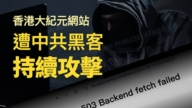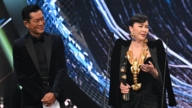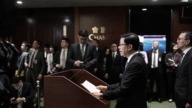【新唐人2013年03月16日讯】“香港人愿意投票支持回归英国管治吗?”香港《南华早报》日前推出这项网上民意调查,目前已经有92%的网民选择“愿意”。评论认为,中国特色的社会主义,对香港同胞没有吸引力。而这项民调的结果,正是香港人对北京一再干预香港事务的反弹。
《南华早报》的民意调查,表达了香港多数人的心声,至于会不会成为改变香港未来的起点?有网友说,中共的洗脑教育,只令港人更厌恶中国,中国不改变,总有一天,香港会偋弃这个民族身份。
香港作家张成觉:“从投票的情况可以看出什么呢,就是中国特色的社会主义,对香港同胞是没有吸引力,这是一种集权制度,就是极少数的权贵在垄断一切,人民大众根本没有权。”
香港《动向》杂志主编张伟国:“有很多人对共产党的统战,对所谓的一国两制,对北京的所谓‘北大人’说不。不管他是投票重新成为英国的殖民地,还是说香港独立,还是说香港以其他的情势,自己发展。都是表达老百姓对共产党的一种反对、抵触、抗争。他们要选择自己的道路,所以这点来讲,应该是很正常的。”
香港回归大陆之前,中共和英国签署了《中英联合声明》,声明第三条第(二)项规定:“除外交和国防事务属中央人民政府管理外,香港特别行政区享有高度的自治权。”中共向英国和香港人保证,香港原有的资本主义制度不变,保持香港的经济繁荣和社会安定,五十年不变。
张伟国:“原来承诺的普选,一而再、再而三的拖,而且改变了这个内容,所以很多当时许下的承诺,都变成了空头支票。香港人民在自己的实践生活当中,看到了共产党的真实面目。看到了香港像被清水煮蛙一样,一步一步的变成大陆的一个新的殖民地。”
有评论指出,中共想掌控香港,不外乎两条路:第一是透过建制精英、亲共势力间接管治香港﹔另一条是梁振英在走的路,就是消除所有反对力量、取代现有政商体系,中共直接治港。
张伟国:“香港人民都认识到他们的地位,他们的政治权利,他们的实际生活,都发生了巨大的变化。所以已经醒悟到,西藏的今天就是香港的明天,现在西藏如此惨烈的黑暗迫害,我相信香港人是无法忍受的。”
香港回归以来,中共渐渐以行政主导,代替原有存在的三权分立﹔以人大释法否决香港人双普选的合法要求﹔以爱国者标准包办特首选举﹔以各种统战手段侵蚀香港的新闻自由,现在更提出在2017年香港特首首次普选时,候选人必须经选举委员会内部“预选”,以确保“筛走”北京中央政府不能接受的人选。换句话说,就是香港的行政首长由北京来钦定。
面对中共种种的政治干预,香港人忍不住了,他们要站出来抗争。
“香港2013年民主呼声”的第一响,由一向低调的法律学者戴耀廷教授开始,他在《信报》发表文章指出,要北京给予港人普选几近天方夜谭,必须动用更大杀伤力武器──占领中环行动,“以瘫痪香港的政经中心,迫使北京改变立场。”
然而作家陈云却不认同“占领中环”争取普选行动。他认为,占领中环行动将会演变成“香港版天安门集会”。陈云表示,北京天安门运动失败之后,大陆民心溃散,最后的道德力量一次耗尽,以后民众不存公义之心。而且官商勾结,不再理会政府集权。民众在夹缝中谋利,赚够钱就移民美国。
不过,香港作家陈婉蓉也表示,“自由民主若是共同幸福,争取的过程也定当是共业。”
采访/李韵 编辑/黄亿美 后制/肖颜
Vote to Return to UK: 92% of Hongkongers Say “YES”
“Would Hongkongers vote to return to
a British overseas territory, given the option?”
This was an online poll launched by
Hong Kong’s South China Morning Post (SCMP).
92% of netizens have voted “YES”.
Political observers say that socialism with Chinese
characteristics is unattractive to the Hong Kong people.
The poll result represents Hong Kong people’s reaction to
the Chinese Communist Party(CCP) intervention in Hong Kong’s affairs.
The SCMP poll result is deemed to voice the
inner wishes of Hong Kong citizens.
Will it be a starting point for a change in the near future?
Netizens in China commented that CCP brainwashing
will only make Hongkongers disgusted with mainland China.
If CCP-ruled China remains unchanged, Hong Kong’s people
will finally renounce their Chinese citizenship.
(Hong Kong writer) Cheung Shing Kok: “The poll result
shows that socialism with Chinese characteristics is not attractive to Hong Kong compatriots.
It is a totalitarian regime, a handful of the rich and powerful
who have monopolized everything.
The masses of the people have no rights at all."
(Chief editor, Hong Kong Trend magazine) Zhang Weiguo:
“Lots of people have said No to the CCP’s United Front tactics, and to its “one country, two systems” policy.
So no matter whether Hong Kong will be voted to re-become
UK’s colony, or to declare its independence, or to separately develop itself in the future,
it will only be a reflection of Hong Kong people’s
opposition to the CCP, a sort of resistance.
They want to choose their own path.
I think it was a very normal reaction.”
Before Hong Kong’s return to mainland China, the CCP Regime
and UK jointly signed the Sino-British Joint Declaration.
In Article 3, Section (b), it states that
“In addition to the foreign and defense affairs which are
the responsibilities of the Central People’s Government,
the Hong Kong Special Administrative Region will
enjoy a high degree of autonomy."
The CCP authorities promised that Hong Kong’s previous
capitalist system will remain intact for 50 years, to sustain
economic prosperity and social stability in Hong Kong.
Zhang Weiguo: “The universal suffrage it promised has
been postponed again and again.
Also its content has been changed.
So many promises it made have now become lip-service.
In their daily lives, the Hong Kong people have come to
discern the CCP’s true face.
They have understood that Hong Kong is now like a frog in
warm water, gradually becoming a new colony under CCP rule.”
Media commentary indicated two options that the CCP
may make to realize control of Hong Kong.
1. indirectly governing Hong Kong through pro-CCP elites
and forces;
2. directly ruling Hong Kong, a path that CY Leung now takes.
That is, eliminating all opposition forces, and replacing
the existing political and commercial system.
Zhang Weiguo: “The people of Hong Kong have realized that
their original status, political rights, and real life have
undergone tremendous changes.
So they’ve awakened now that today’s Tibet is
Hong Kong’s tomorrow.
Tibet has undergone so much brutal persecution,
which is intolerable to the Hong Kong people, I think.”
After Hong Kong’s return to China, the CCP has gradually
replaced its tripartite system with executive-led governance.
The regime has ruled out dual universal suffrage in
Hong Kong with interpretation of Basic Law by the National People’s Congress.
It has monopolized the election of Hong Kong Chief Executive
with its own criteria of patriots.
Also, through various united-front means,
the CCP violates Hong Kong’s press freedom.
It has announced that in 2017 the first universal suffrage of
the Chief Executive, the candidates will only be generated through the Election Committee’s “pre-selection".
This will ensure the sifting out of candidates that
the Beijing regime disfavors.
In other words, CCP top leaders will handpick
the Hong Kong Chief Executive.
The CCP’s political interference has outraged
Hong Kong citizens. They have stood up and fought back.
The first ring came from Benny Tai Yiu Ting, a legal scholar.
The Hong Kong Economic Journal published his article.
The article said that it’s almost a fairy tale to get
Beijing’s promise of universal suffrage.
It needs Hongkongers to take more ambitious action ——
to occupy Hong Kong’s central business district.
“This is to paralyze Hong Kong’s political and economic center,
to force Beijing to change its position."
Writer Chen Yun disapproved of the “Occupy Central" proposal.
He remarked that the action will lead to
a Hong Kong version of Tiananmen Square rally.
Chen indicated that after the failure of Tiananmen pro-democracy
movement, morale was left shattered in the mainland.
The depletion of the last moral force resulted in
a shortage of morality among the public in China.
He adds that officials-business collusions have made
the mainlanders ignore the autocracy.
Civilians there have focused on making money
between millstones.
Once making enough money, they have opted to
emigrate to the U.S.
Hong Kong writer, Chen Wanrong, commented.
She said that “If free democracy is real public happiness,
the process of obtaining it is surely a public undertaking.”


